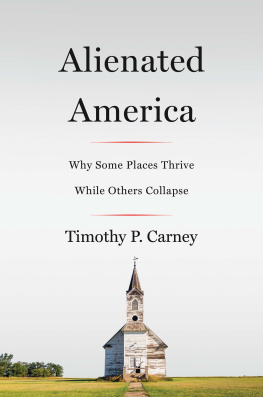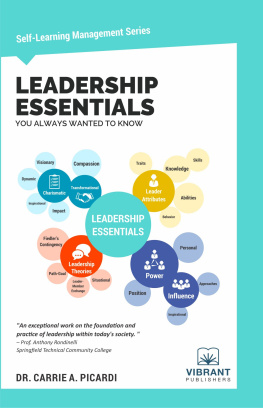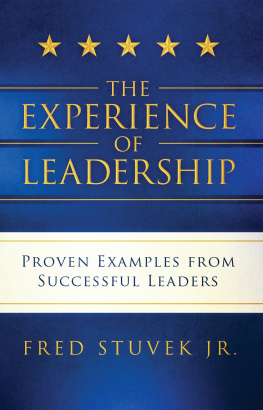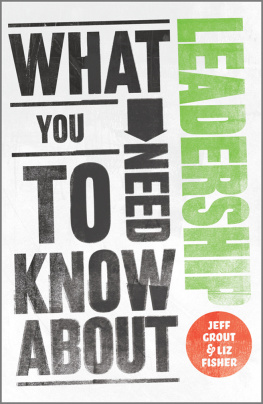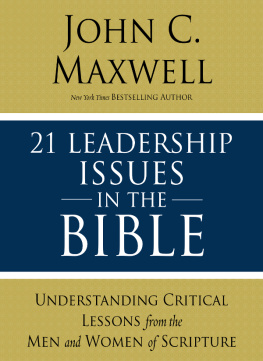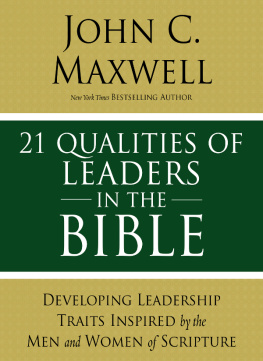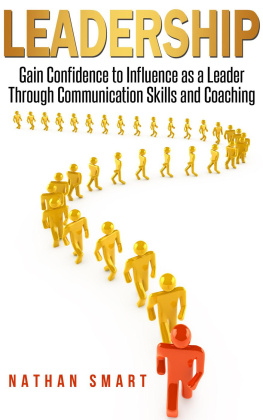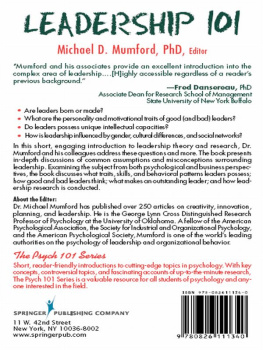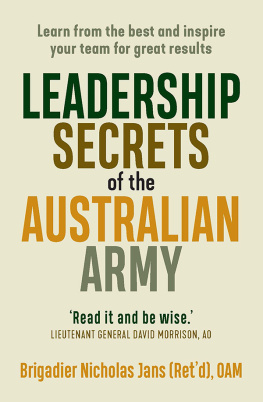THE CHANGE MAKERS
25 LEADERS IN THEIR OWN WORDS
THE CHANGE MAKERS
25 LEADERS IN THEIR OWN WORDS
SHAUN CARNEY

MELBOURNE UNIVERSITY PRESS
An imprint of Melbourne University Publishing Limited
Level 1, 715 Swanston Street, Carlton, Victoria 3053, Australia
www.mup.com.au

First published 2019
Text University of Melbourne, 2019
Design and typography Melbourne University Publishing Limited, 2019
This book is copyright. Apart from any use permitted under the Copyright Act 1968 and subsequent amendments, no part may be reproduced, stored in a retrieval system or transmitted by any means or process whatsoever without the prior written permission of the publishers.
Every attempt has been made to locate the copyright holders for material quoted in this book. Any person or organisation that may have been overlooked or misattributed may contact the publisher.
Cover design by Mary Callahan
Typeset in Minion 11/15pt by Cannon Typesetting
Printed in Australia by McPhersons Printing Group

A catalogue record for this
book is available from the
National Library of Australia
9780522874785 (paperback)
9780522874792 (ebook)
Contents
Preface
Shaun Carney
After forty years of political journalism, I believed I had a reasonable understanding of leadership. I thought I knew what it wasand what it wasnt. In recent years Id come to believe, like many Australians, that Id been witnessing too much faux leadership by individuals occupying leaders positions who did not, in effect, lead.
Modern politicians do face unprecedented challenges. They ply their trade in a disrupted, fragmenting environment in which fewer of us formally attach ourselves to political parties. All the same, there appears to be something missing when it comes to contemporary political leadership. Leadership is obviously not restricted to politics, although in Australia the default assumption of many of us is that political leadership is the nations category killer. There are historical reasons for this. Were a country thats physically isolated, that was created by an act of parliament in a far-off nation. As a former colony that for many decades was unsure of its place in the world, our deeply ingrained habit continues to be to look to governmentsand politicians in generalfor direction and protection. Thats bound to lead to disappointment from time to time.
The McKinnon Prize in Political Leadership, which inspired this collection, is designed to recognise politicians, at all levels of government, who generate national discussion about our expectations of political leadership and inspire others to pursue courageous and visionary leadership. It also recognises politicians who have successfully tackled vital issues of public policy, overcome adversity, and achieved real change for the public good. Contributions from the inaugural McKinnon Prize winners, Liberal senator from Western Australia Dean Smith and Torres Shire Council mayor Vonda Malone, are included here.
But the aim of The Change Makers is to reach beyond the world of formal politics to examine leadership in all its forms across the Australian community. If its true that theres a leadership deficit in contemporary politicsand Senator Smith, the one national politician featured here, declares that politics is failing peopletheres a lot to be gained by hearing from leaders in sport, education, business, defence and national security, community activism, philanthropy, policing, theatre, academia, science, medicine and Indigenous affairs.
Here, youll get insights into how leaders who operate in areas adjacent to politicsACTU secretary Sally McManus, the Business Council of Australias Jennifer Westacott, National Farmers Federation president Fiona Simsonlead their organisations. But youll also read the stories of people whove single-handedly created leadership positions for themselvesnot because they necessarily wanted to be in charge of other people, but because they had an idea that they were determined to make a reality.
The twenty-five leaders featured in this book didnt sit down at a desk and commit their thoughts to paper or pixels. I interviewed them and edited their responses. The goal was to discover how they came to be leaders and what theyd learned along the way. I wanted to know about their ambitions and the methods they used to meet their responsibilities. What motivated them to step forward and make decisions that would affect the lives and aspirations of others? What was their relationship with humility? How did they respond to failure?
These interviews made me realise that my many years of focusing attention chiefly on the pursuit and dispensation of power through politics had given me a blinkered and narrow view of what constitutes leadership. You dont need a formal title to be a leader; just taking the time to listen to a workmate, or deciding to do the unwelcome task that no-one else seems to want to do at your local community group or sports club, can be an act of leadership. In many respects, leadership can just mean getting involved. In the media, we often talk about political leaders showing courageor not showing itbut it now seems to me that many of our non-political leaders have a better day-to-day acquaintance with that quality.
Most of them arent operating at a remove from the people theyre looking after or trying to help. Often, theyre making choices that will affect the welfare and aspirations of the people with whom they have direct contact. Sometimes, as in the cases of ASIO head Duncan Lewis and the emergency doctor Simon Judkins, the choices they make can have profound, life-changing consequences, and their decisions must sometimes be reached almost in an instant.
Several overarching themes became evident during the interviews. The main one was that you achieve by doing, not by talking or planning or dreaming or complaining. Adjacent to that is the acceptance of risk; few lasting achievements come without risk. In short, if you want to be a change maker, get on with it.
There is no single personality type that determines that someone will be a leader. Big personalities full of ambition are here, but so too are shy individuals whove simply followed their passions and what interests them. Some leaders, such as Kon Karapanagiotidis and Terry Bracks, fashioned their own leadership positions by creating not-for-profit organisations. Barb de Corti found wealth by starting her own business. However, all three set out with a common goal: to help people.
Others have moved through corporate or military or bureaucratic ranks on the way to becoming leaders. Some have simply found themselves to be leaders when that was not a path they had envisaged for themselves. This was Fiona Simsons story after she joined a community action group that opposed the granting of mining exploration licences on farms in New South Wales. Carly Findlay, a disability and appearance activist, is the leader of no organisation. Her leadership, driven mostly by her confessional writing, comes via her determination to change attitudes towards people such as herself, who have conditions that cause them to look different.
If theres something thats common to the wisdom shared by all of the people who contributed their insights and experiences to this collection, its that purpose is essential. There has to be a reason for stepping forward to seek or claim or accept the title of leader. Its not about building a CV. Creating something that can make things better for others, or changing something that needs changingor doing bothseems to be the key.
Next page


